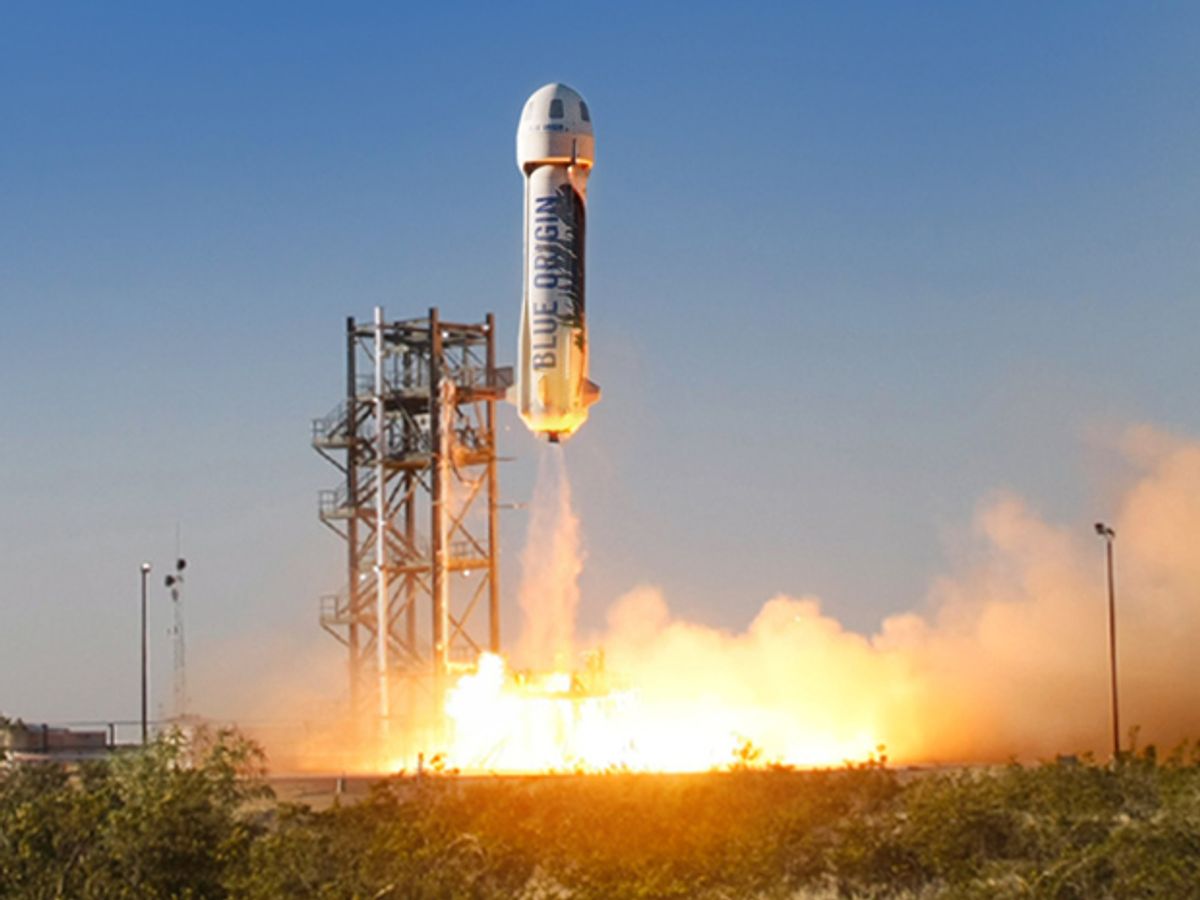The commercial spaceflight race continues to heat up as Amazon founder Jeff Bezos announced his Blue Origin spaceflight company’s first flight test of a new space vehicle this week. The New Shepard space vehicle marks Blue Origin’s attempt to create a fully reusable rocket system capable of both vertical takeoff and landing.
New Shepard consists of a propulsion “rocket” module and a crew capsule designed to carry as many as six people on a suborbital spaceflight. The space vehicle’s first flight test on 29 April succeeded in delivering the crew capsule to its planned test altitude of almost 94 kilometers. The crew capsule separation was “perfect” and allowed the capsule to eventually parachute safely to Earth. But the propulsion module suffered a malfunction during its own descent and crashed rather than pulling off a vertical upright landing.
“In fact, if New Shepard had been a traditional expendable vehicle, this would have been a flawless first test flight,” said Jeff Bezos in a statement on the Blue Origin website. “Of course one of our goals is reusability, and unfortunately we didn’t get to recover the propulsion module because we lost pressure in our hydraulic system on descent.”
Still, Bezos said that Blue Origin has already been working on an “improved hydraulic system” for some time. He added that the spaceflight company has already begun assembling additional propulsion modules for New Shepard and the spacecraft will be “ready to fly again soon.” Blue Origin previously told The Space Review that it anticipates flight tests about every month as it conducts its test program over the next several years.
Blue Origin’s emphasis on creating a reusable rocket system represents potential future competition for Elon Musk’s SpaceX. The latter spaceflight firm has been launching supplies to the International Space Station under a NASA contract and trying to achieve a reusable test landing of its Falcon 9 rocket on a drone ship at sea.
The New Shepard test relied on a liquid hydrogen–liquid oxygen BE-3 engine to power the space vehicle past Mach 3. But Blue Origin has also already been working on a more powerful liquefied natural gas–liquid oxygen BE-4 engine that would power a “Very Big Brother” orbital launch vehicle many times larger than New Shepard.
Blue Origin’s BE-4 engine will also power a next-generation rocket called Vulcan, which was recently announced by the United Launch Alliance (ULA) coalition between Lockheed Martin and Boeing. ULA hopes that Vulcan can compete with SpaceX’s Falcon 9 using a different reusability scheme based on a helicopter mid-air retrieval system.
Jeremy Hsu has been working as a science and technology journalist in New York City since 2008. He has written on subjects as diverse as supercomputing and wearable electronics for IEEE Spectrum. When he’s not trying to wrap his head around the latest quantum computing news for Spectrum, he also contributes to a variety of publications such as Scientific American, Discover, Popular Science, and others. He is a graduate of New York University’s Science, Health & Environmental Reporting Program.



